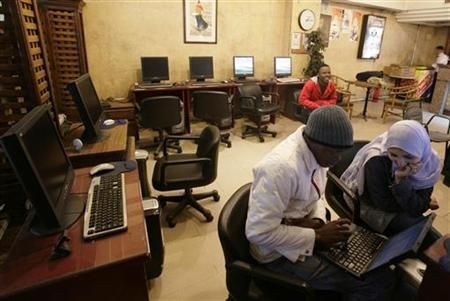Columbia University professor establishes foundation to enable government-proof Internet

Alarmed by the rising instances of state policing and censorship of citizens' online liberties, a professor at Columbia University, and an expert in computers and privacy, is reportedly trying to rebuild the Internet in a way that will make it impossible for governments or corporate authorities to restrict its use and access.
According to a feature in The New York Times, Eben Moglen, professor of law and legal history and Chairman of Software Freedom Law Center, is trying to base his innovation on miniscule network servers that are the size of power adapters for regular electronic appliances, run on low-power chips and can be plugged into the wall. These when embedded with a free software operating system could run a complete range of Internet applications and would be completely autonomous and designed to preserve personal privacy. They have been aptly called Freedom Boxes, to organize the software for which, Moglen has established the Freedom Box Foundation.
On a fund-raising platform, the Foundation highlights the complete benefits of these boxes. Such a box could help in disasters by creating a mesh network with your neighbors to replace the centralized internet connections that go out with the lights or are cut by hostile governments. Such a box would make it harder for governments and invasive corporate interests to reach your data and casually profile you for their own uses. Such a box would also let you lend aid to friends in need by sharing your unfettered internet access with those trapped behind government firewalls that prevent them from learning about the world or speaking plainly to it, specifies the plea on Kickstarter.
Earlier this month, Moglen addressed a group of programmers at the Free and Open source Software Developers' European Meeting (FOSDEM) held in Brussels and urged them to join the mission. The professor roused the audience saying, What has happened in Iran, in Egypt, in Tunisia-and what will happen in other societies over the next few years-demonstrates the enormous political and social importance of social networking. But everything we know about technology tells us that the current forms of social network communication, despite their enormous current value for politics, are also intensely dangerous to use...They are too centralized, they are too vulnerable to state retaliation and control. The design of their technology, like the design of almost all unfree software technology, is motivated more by business interests seeking profit than by technological interests seeking freedom... We need to fix this. We need to fix it quickly.
The New York Times also reports that Moglen's call for collaboration in this project has inspired a group of developers working in a free operating system called Debian to already start work on developing software for the Freedom Box.
© Copyright IBTimes 2025. All rights reserved.





















